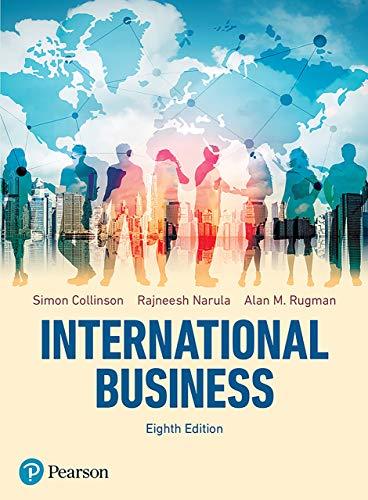Question
Massmart, majority-owned by U.S. retail giant Wal-Mart, sells goods ranging from food and televisions to refrigerators and operates nearly 400 stores, including 42 across 12
Massmart, majority-owned by U.S. retail giant Wal-Mart, sells goods ranging from food and televisions to refrigerators and operates nearly 400 stores, including 42 across 12 countries outside South Africa. “We’re very bullish about Africa, sub-Saharan Africa as a whole,” Kuseni Dlamini told Reuters on the sidelines of the African CEO Forum in Ivory Coast’s commercial capital Abidjan. “This year alone we will be opening eight new stores on the African continent. In the next three years we’ll be expanding our retail trading space by 35.6 percent.” That is an increase from around 26 percent in 2017 and 2018. New stores are due to open in Kenya, Ghana, Mozambique, Zambia, and Swaziland. Dlamini said Massmart is also studying markets in French-speaking West and Central Africa with a view to starting operations there. “When we talk about growing our business across sub-Saharan Africa, that definitely includes Francophone Africa,” he said. South African retailers have struggled as consumers battling job losses and high personal debt levels hold back on spending, but Massmart has lagged its closest rival Shoprite both on the stock market and operationally in recent years. Shoprite has defied many investors’ expectations it would lose ground with the 2011 entry into South Africa of Walmart - the world’s biggest retailer - and posted double-digit earnings growth despite a recession at home. Shares in Massmart, which posted a 2 percent rise in annual profits in 2017, have failed to keep pace with Shoprite, Africa’s biggest retailer, which has pursued an aggressive expansion strategy abroad as the economy at home has lagged. “We see ourselves as playing a catalytic role in the modernization of African retail,” Dlamini said. “We are deliberately very cautious and measured. It’s a very measured strategy because we’re in it for the long term.” He added that recent political events in South Africa, including former President Jacob Zuma’s resignation and replacement by Cyril Ramaphosa, were encouraging. South Africa slipped into its first recession in eight years in 2017, with political turmoil sending business and consumer sentiment to multi-year lows. “We foresee consumer and business confidence getting better. We’ve already started to see some improvements on that front,” he said. “Part of our strategy is to really improve and expand our core business in South Africa. It still accounts for about 91 percent of our overall business.”
![]()
Questions:
As a Strategic Management student, advise Mr. Kusile Dlamini (Massmart Chairperson) and his team on the fundamental foreign market entry decisions that Massmart should consider before entering the foreign market
Evaluate the challenges of Foreign Direct Investment (FDI) that may have an impact on Massmart decision to expand their Africa market.
Source: https://www.reuters.com/article/us-africa-business-massmart-idUSKBN1H22F
Step by Step Solution
There are 3 Steps involved in it
Step: 1
As a Strategic Management student here is advice for Mr Kuseni Dlamini and his team at Massmart regarding fundamental foreign market entry decisions and challenges of Foreign Direct Investment FDI in ...
Get Instant Access to Expert-Tailored Solutions
See step-by-step solutions with expert insights and AI powered tools for academic success
Step: 2

Step: 3

Ace Your Homework with AI
Get the answers you need in no time with our AI-driven, step-by-step assistance
Get Started


